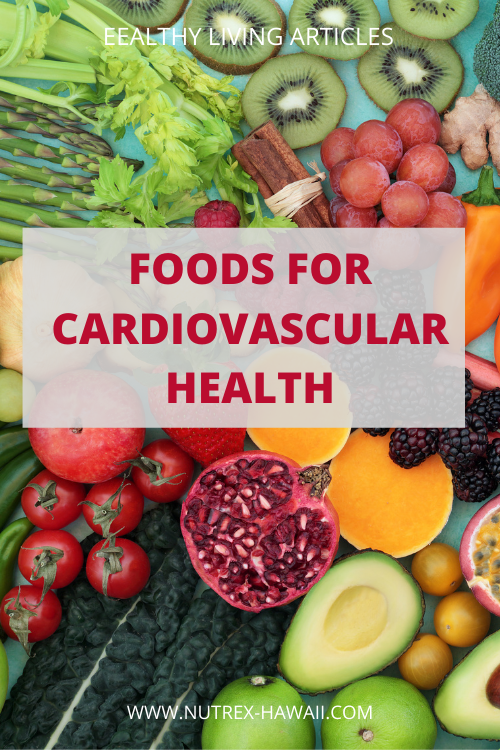Heart disease kills more people in the United States than any other disease. A scary as this stat is, there’s hope for people who want to improve their heart health, simply by living an active lifestyle and eating heart healthy foods.
So, what are the best foods for cardiovascular health? The following 10 nutritious foods sourced right from nature can help to build a strong heart. Read on for details!
Oats
Oats contain fiber, which helps reduce cholesterol. Oats soak up cholesterol in the digestive tract, like a sponge, keeping it out of the bloodstream and helping the heart stay healthy. Oats can be used to make oatmeal, oat muffins, and other healthy meals and snacks. When making oatmeal for breakfast, be sure to use pure steel-cut oats or rolled oats that don’t have any added sugar.
Dark Chocolate
Studies show that dark chocolate (pure chocolate without milk and with low sugar content) can support cardiovascular health and reduce risk of heart disease. Dark chocolate contains polyphenols and flavonoids that can support cardiovascular health. When eating dark chocolate, make sure to choose raw, unsweetened chocolate, and consider adding it to whole-grain cereals and fruit-filled smoothies.
Blueberries
Blueberries contain anthocyanins, the substances that give plants their blue and red colors. These elements also help support healthy blood pressure. Add blueberries to cereals, smoothies, and even baked goods1.
Tomatoes
If you love tomatoes, then include them in as much of your food as possible because they’re full of heart-healthy potassium. Tomatoes also contain lycopene and antioxidants. To get the most nutrients out of tomatoes, be sure to cook them. Add them to whole-grain pastas, cheese-less veggie pizzas, and beans and rice dishes.
Nuts
Nuts like walnuts, almonds, pistachios, cashews, and macadamia nuts are high in fiber, which is good for the heart. They’re also vitamin E-rich, so eat about a handful a day. Some nuts, such as walnuts, contain omega-3 fatty acids.
Citrus Fruit
For a healthy heart, eat citrus fruits like oranges and grapefruits; and as an alternative, you can also juice with lemons and limes. Citrus fruits contain flavonoids2.
Legumes
Legumes (beans and peas) are a great source of protein that don’t bring along any unwanted and unhealthy fat, so they can benefit the body and the heart. A study of people who consumed legumes at least four times a week showed that participants reduced their risk of heart disease by as much as 22%. Legumes help regulate blood sugar, which is beneficial for anyone who wants to avoid heart complications.
Extra-Virgin Olive Oil
Opt for expeller-pressed, extra-virgin olive oil when making salad dressings or other oil-based foods. A Mediterranean diet includes at least four tablespoons of extra-virgin olive oil a day. Extra-virgin olive oil is filled with beneficial monounsaturated fats3.
Spirulina
Spirulina supports maintenance of cholesterol, low density lipoprotein (LDL), triglyceride and lipid profiles already within the normal range. In addition, spirulina supports maintenance of blood pressure levels already at a normal range*.
Salmon
Fish oil with omega-3 fatty acids isn’t the only thing from the ocean that can improve function in the human body. Astaxanthin is a carotenoid pigment that occurs in Pacific salmon and is what gives the fish its pinkish color.
An antioxidant, astaxanthin is said to have many health benefits. It supports a healthy heart, healthy skin, recovery after exercise, and joint health*4.
There is a growing body of scientific evidence supporting the benefits of astaxanthin for heart health, including reduced oxidative stress*5.
All of these heart-healthy foods are readily available in most grocery stores, health food stores, and local farmers markets. Many of them can be grown at home right in your backyard or patio garden!
To find the best Hawaiian Spirulina® and Hawaiian Astaxanthin® or find additional health and fitness information, visit www.nutrex-hawaii.com
*These statements have not been evaluated by the Food and Drug Administration. This product is not intended to diagnose, treat, cure, or prevent any disease.
Contact your healthcare provider prior to beginning any new exercise or diet plan.
References:
1. http://www.whfoods.com/genpage.php?tname=foodspice&dbid=8
2. http://ajcn.nutrition.org/content/78/3/544S.full
4. https://www.healthline.com/health/health-claims-astaxanthin
5. https://www.vitafoodsinsights.com/heart/beat-goes-astaxanthin-heart-health

